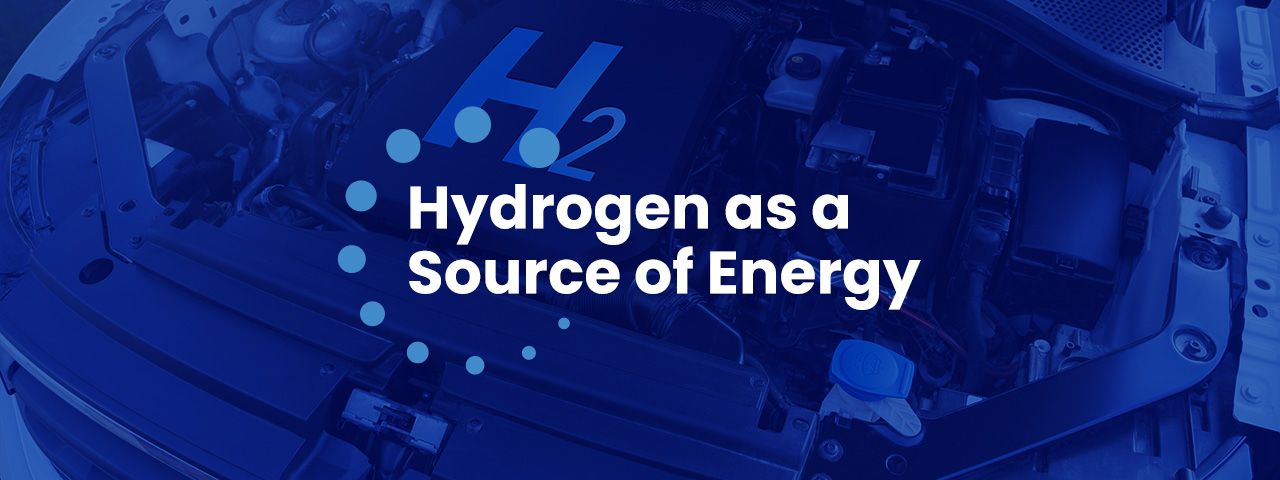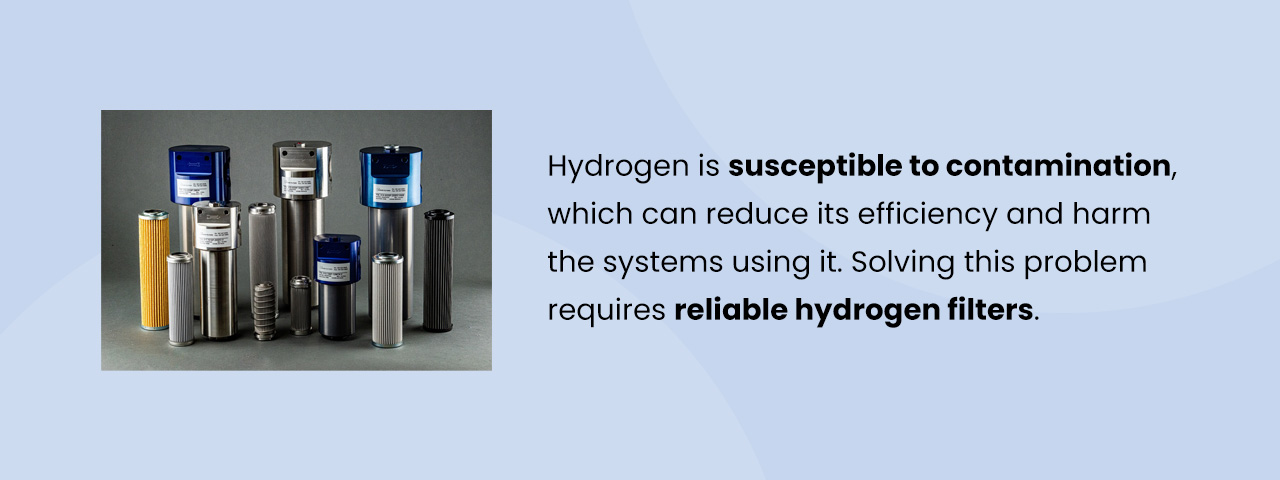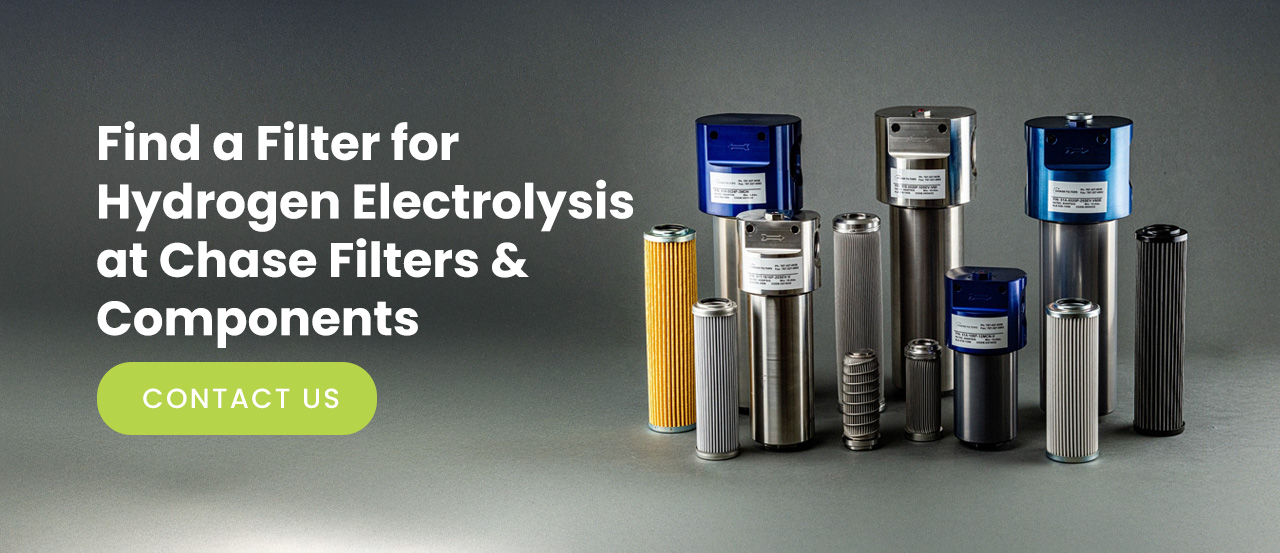December 31, 2024
Hydrogen as a Source of Energy
Hydrogen is the simplest and most abundant element in the universe. It’s also a powerful alternative energy source with the potential to contribute to an emission-free future for households and industries. While engineers are still working on more sustainable and cost-effective ways of harnessing hydrogen, this energy carrier is already fueling operations in agriculture, petroleum refining, transport and many other industries.
Use of Hydrogen Across Industries
Hydrogen shows the potential to replace fossil fuels in diverse industries. Established and emerging applications of hydrogen as an energy source include:
- Transport: Refillable hydrogen fuel cells power vehicles for emission-free driving. Hydrogen-powered cars, trains, planes, logistic vehicles and ships are all feasible. Pure, harmless water vapor is the only waste product from running a vehicle on hydrogen, making it an eco-friendly option. The United States already has about 60 hydrogen fueling stations.
- Petroleum refining: Petroleum refineries use hydrogen to reduce the sulfur content of fuel. Hydrogen reacts with the sulfur in crude oil, converting it to hydrogen sulfide, which the refinery can extract from the fuel. By reducing sulfur levels in petroleum, refineries can comply with environmental regulations, protect vehicles and reduce harmful emissions.
- Biofuel production: Biofuel producers rely on hydrogen when making hydrotreated vegetable oil (HVO) to use as renewable diesel. Under high pressures and temperatures, the hydrogen reacts with the oils to remove oxygen and form hydrocarbons, producing clean-burning HVO.
- Agriculture: Agricultural companies in fertilizer production through the Haber-Bosch process. This involves causing a reaction between hydrogen and nitrogen from the air to produce ammonia — a key fertilizer ingredient for nourishing plants with nitrogen. Hydrogen can also power agricultural machines like tractors and harvesters.
- Construction: Steel manufacturers can use hydrogen instead of carbon as a reducing agent to produce green steel, which contributes to carbon-neutral building strategies. Hydrogen can also power construction machines like excavators, bulldozers and cranes.
- Power plants: Fuel cell power plants produce electricity by combining hydrogen and oxygen within battery-like cells. They use these as supplemental or backup power supplies for facilities, though we can expect to see larger-scale applications in the future. Hydrogen sources for fuel cell power plants include pipeline natural gas, biogas from wastewater treatment and landfill gas.
- Energy storage: Engineers have developed technologies to store hydrogen for use as an energy carrier in gas and liquid forms. Gaseous hydrogen storage in pressurized tanks or hydrogen gas pipelines seems to be the most cost-effective and scalable approach to storing hydrogen for household and industrial uses. Producing hydrogen from renewable sources and using it to generate electricity could be a viable strategy for decarbonizing the energy sector.
- Households: Emerging household applications for hydrogen energy include fuel cells for backup power and innovative hydrogen-powered appliances for heating and other functions. As hydrogen production, storage and distribution expand, anticipate household applications to follow.
Benefits of Using Hydrogen
All these diverse industries are turning to hydrogen because of its significant benefits, including:
- Power: Hydrogen has the highest energy density of any fuel source, making it an efficient and effective industrial energy carrier.
- Sustainability: Vehicles and machines can use hydrogen for energy without producing any greenhouse gas emissions.
- Storability: Hydrogen is an effective carrier for storing excess energy. This can help manage the intermittent supply of solar and wind power.
- Versatility: Hydrogen is compatible with a broad range of energy systems, industrial processes and machinery.
Hydrogen Production Methods
Engineers have a few ways of producing hydrogen for use as an energy carrier:
- Water electrolysis: Water electrolysis uses electrical energy to break down two water molecules into two hydrogen molecules and one oxygen molecule. Using electricity from a renewable source like solar power in photovoltaic water electrolysis makes this a carbon-free process. Water electrolysis is the most sustainable approach to hydrogen production, though other viable methods exist.
- Steam-methane reforming: This process involves high-temperature steam reacting with hydrocarbon fuel to produce hydrogen. Natural gas, landfill gas and biofuel are all viable sources for this process. Unlike photovoltaic water electrolysis, steam-methane reforming emits carbon monoxide and a small amount of carbon dioxide.
- Organic reactions: Engineers can harness hydrogen gas that microbes like microalgae and bacteria release when consuming plant material.
- Sunlight-driven processes: Sunlight-driven methods for hydrogen production include photobiological processes using microorganisms, photoelectrochemical cells that convert sunlight into hydrogen and solar thermochemical processes using concentrated solar energy to trigger hydrogen-producing chemical reactions.
Hydrogen Production Challenges
Companies and engineers producing hydrogen for industrial and consumer use face four main obstacles:
- Perception: The public needs more education about hydrogen energy and why they should embrace this relatively unfamiliar fuel.
- Costs: Sustainable hydrogen production at scale is expensive. Production upscaling and methodological research must continue to enhance cost-efficiency.
- Infrastructure: Existing infrastructure for hydrogen production, storage and distribution is limited. Infrastructure like hydrogen storage facilities, pipelines and refueling stations must expand for hydrogen to replace fossil fuels at scale.
- Purity: Hydrogen is susceptible to contamination, which can reduce its efficiency and harm the systems using it. Solving this problem requires reliable hydrogen filters.
The Need for Hydrogen Filtration
During production, hydrogen is vulnerable to contaminants like dirt, rust and scale. Contaminated hydrogen hinders efficiency and can damage energy systems. If you’re involved in producing, storing, distributing or using hydrogen in liquid or gas form, you need hydrogen filters to maintain quality fluid and maximize the life spans of energy systems using it.
Two hydrogen filter types to consider are:
- HY51 Series Tee-Type filters: These filters remove damaging contaminants to maximize system efficiency. They are rated at 3,000 pounds per square inch (psi) operating aluminum or 6,000 psi stainless steel. Special features include differential pressure indicators, a broad range of micron ratings, and bowl drain options.
- HY52 Series Tee-Type filters: These filters are just as effective as their 51 Series counterparts, but can handle much higher pressures. They come with housings rated for up to 15,000 psi operating pressures. This makes them ideal for high-pressure industrial applications like petroleum refining, aerospace and military use. Options include various port sizes and elements — micro-glass, stainless steel, or porous sintered stainless steel.
Choose Chase Filters & Components for Hydrogen Filters
If your company produces, distributes or uses hydrogen, Chase Filters & Components has the filters you need for durable, efficient hydrogen energy systems. We’re a trusted supplier of hydrogen filters to industries as diverse as aerospace and defense, oil and gas and agriculture.
Our hydrogen filters include the HY51 Series, HY52 Series and others. Each filter type is available in various elements with customizable options to suit your application. Implementing our reliable filters can protect your components from failure, saving you maintenance time and repair costs.
Explore our range of hydrogen filters to meet your industrial hydrogen filtration needs. Contact us for hydrogen filters!


